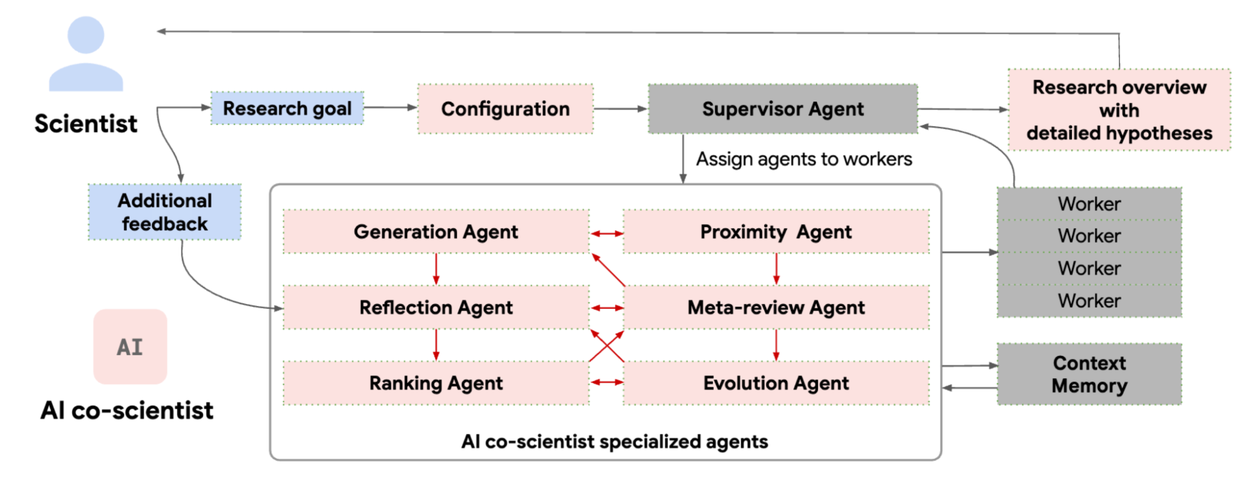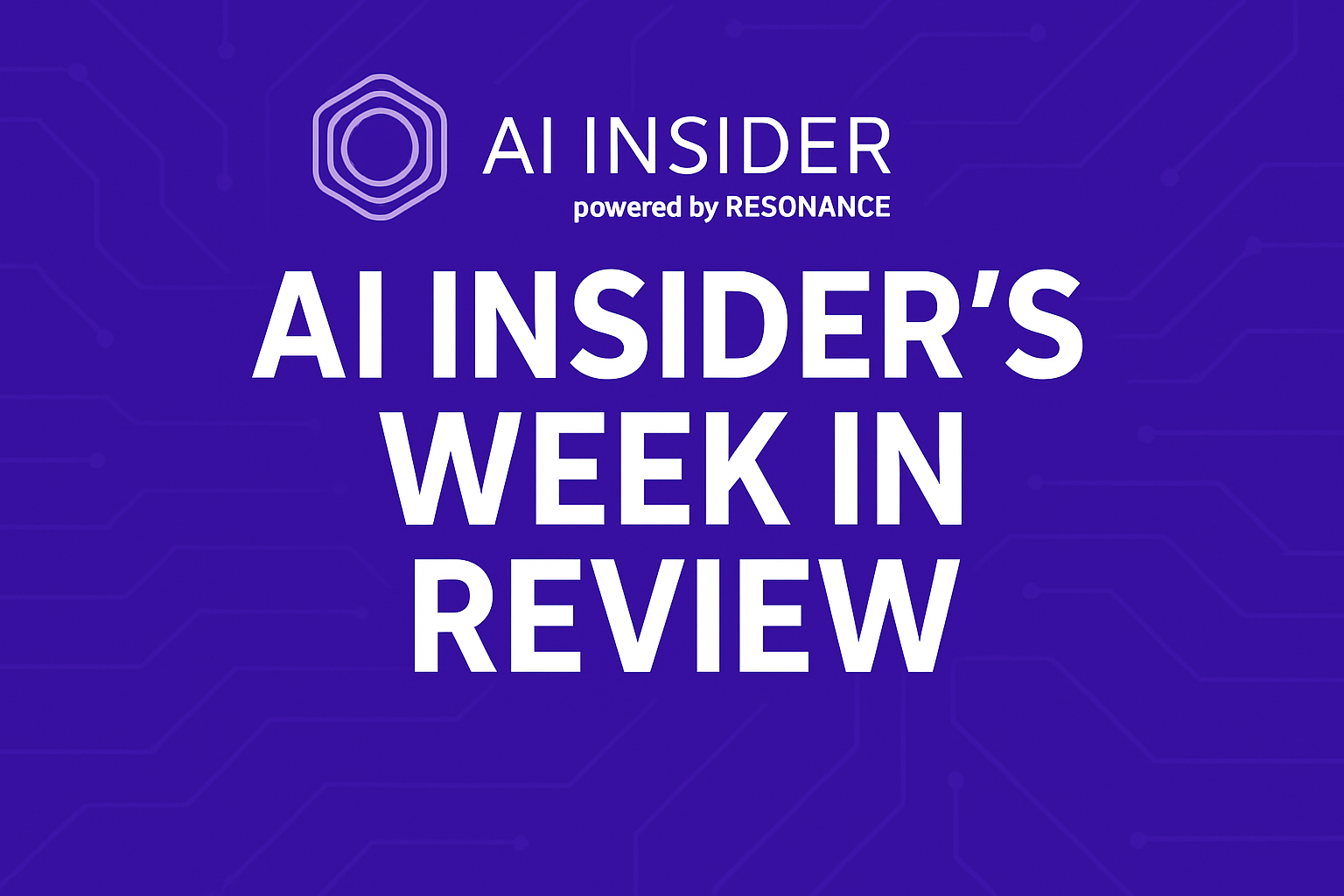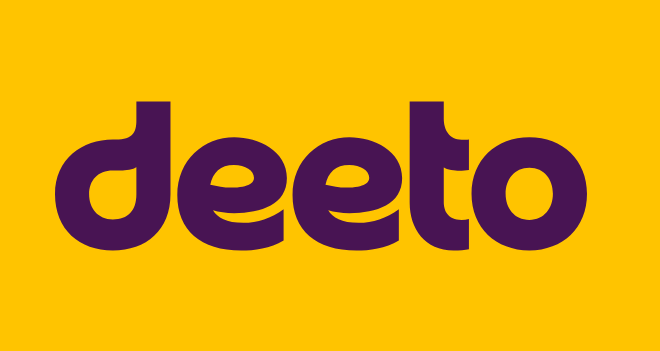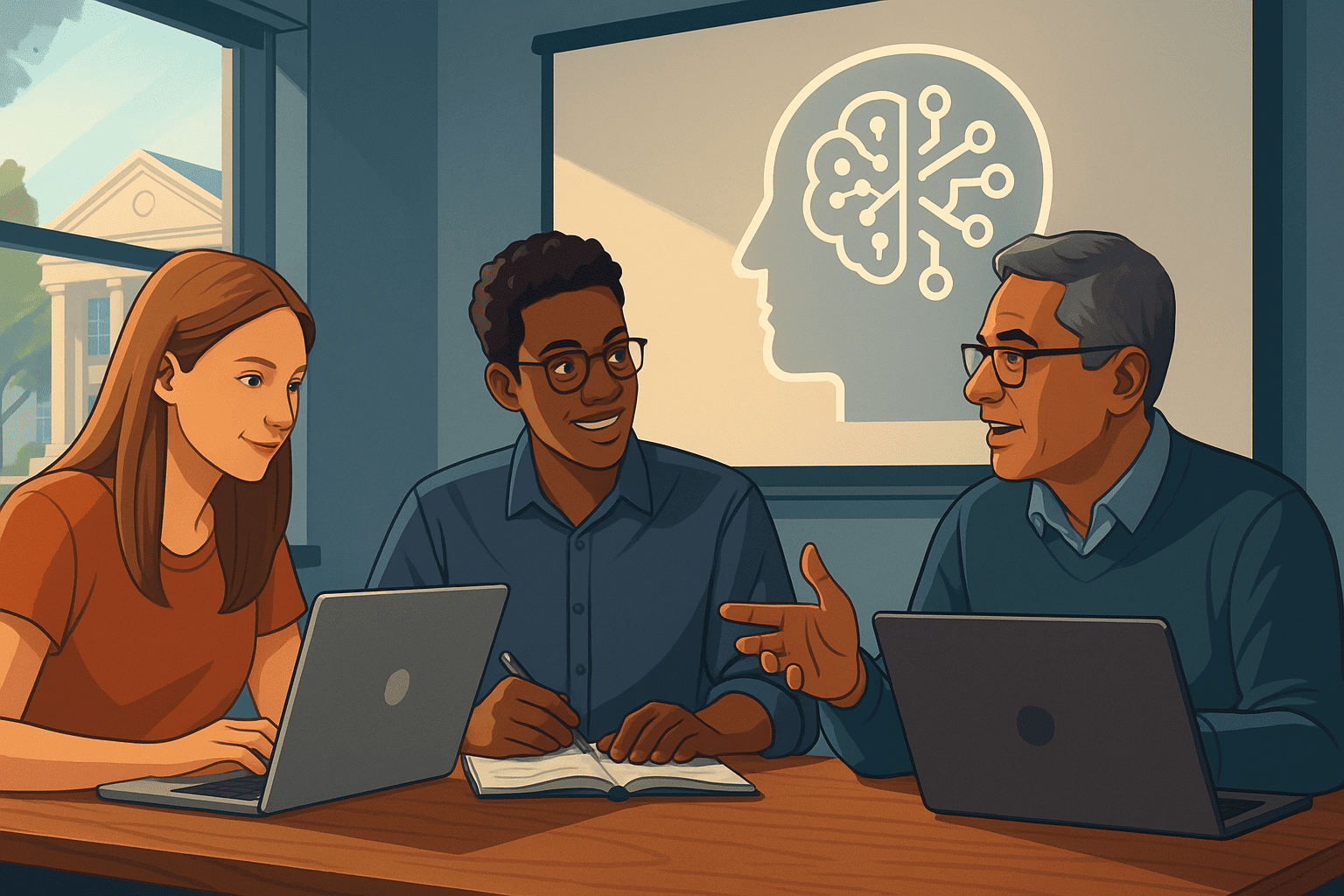Insider Brief:
- Google introduced AI Co-Scientist, a multi-agent AI system built on Gemini 2.0, designed to assist researchers in generating novel hypotheses and research proposals. The system is intended to accelerate scientific and biomedical discoveries by synthesizing knowledge across disciplines and iteratively refining ideas.
- AI Co-Scientist operates through specialized AI agents that generate, evaluate, and refine hypotheses using structured feedback loops. Researchers can guide this process by providing seed ideas, refining AI-generated suggestions, and integrating external tools like web search and specialized AI models.
- The system leverages test-time compute scaling to iteratively improve outputs, using self-play debates, ranking tournaments, and evolutionary refinement. The Elo auto-evaluation metric tracks hypothesis quality, with early tests showing a correlation between higher Elo scores and increased accuracy.
- Initial tests in biomedical research validated AI Co-Scientist’s ability to identify promising drug repurposing candidates, propose novel treatment targets, and rediscover key antimicrobial resistance mechanisms. Google plans to expand testing through a Trusted Tester Program to further refine the system’s capabilities.
- Image Credit: Google Research
PRESS RELEASE — In a recent post, Google announced AI Co-Scientist, a multi-agent AI system built on Gemini 2.0 that acts as a virtual scientific collaborator. Designed to assist researchers in generating novel hypotheses and research proposals, the system is intended to be used to accelerate scientific and biomedical discoveries by synthesizing knowledge across disciplines and iteratively refining ideas.
Addressing the Challenges of Modern Scientific Research
Scientific progress often relies on researchers combining insights from multiple fields. However, the rapid growth of scientific literature makes it difficult to integrate findings from unfamiliar domains. AI Co-Scientist is designed to address this challenge by navigating large datasets, identifying patterns, and proposing new research directions—all while mirroring the reasoning process of the scientific method.
Unlike traditional literature review tools, AI Co-Scientist is designed to go beyond summarization. It is designed to generate new, original knowledge, formulating testable hypotheses and detailed research proposals based on prior evidence.
How AI Co-Scientist Works
AI Co-Scientist operates through a coalition of specialized AI agents, each assigned a specific function in hypothesis generation and refinement:
- Generation Agent – Produces initial hypotheses.
- Reflection Agent – Evaluates and refines hypotheses.
- Ranking Agent – Compares hypotheses based on potential impact.
- Evolution Agent – Iteratively improves ideas.
- Proximity Agent – Assesses relevance to existing research.
- Meta-Review Agent – Oversees the scientific reasoning process.
These agents interact in a self-improving cycle, using automated feedback loops to enhance the quality of outputs. Researchers can guide this process by providing seed ideas, refining AI-generated suggestions, and integrating external tools like web search and specialized AI models.
Scaling Scientific Reasoning with Compute
AI Co-Scientist leverages test-time compute scaling, allowing it to allocate additional computational resources to refine hypotheses over time. This approach enhances its ability to reason iteratively, improving the quality of outputs through structured evaluation processes. The system employs self-play debates, where AI agents challenge and refine each other’s hypotheses, and ranking tournaments, where competing ideas are assessed based on predefined criteria. Through an evolutionary improvement process, promising hypotheses undergo multiple refinement cycles, leading to more robust research proposals.
To measure the effectiveness of its generated hypotheses, AI Co-Scientist uses the Elo auto-evaluation metric, a ranking system inspired by chess. This metric tracks how hypotheses improve as they progress through the system’s reasoning framework. Early tests indicate a strong correlation between higher Elo scores and both accuracy and research impact, suggesting that as the AI spends more time refining ideas, the quality of its outputs continues to improve.
Experimental Validation and Real-World Impact
The capabilities of AI Co-Scientist have been tested across multiple biomedical applications, with expert researchers assessing the novelty and practicality of its findings. In drug repurposing for Acute Myeloid Leukemia (AML), the system identified potential therapeutic candidates, which were later validated through in vitro experiments confirming their ability to inhibit cancer cell viability. Similarly, in the area of target discovery for liver fibrosis, AI Co-Scientist generated hypotheses focused on epigenetic targets with antifibrotic potential. These predictions were tested in human hepatic organoids, with further validation conducted in collaboration with Stanford University.
Beyond drug discovery, AI Co-Scientist was also tasked with exploring mechanisms of antimicrobial resistance (AMR). In this case, it independently rediscovered a key mechanism related to bacterial gene transfer—specifically, the role of capsid-forming phage-inducible chromosomal islands (cf-PICIs) in expanding host range. Remarkably, this finding aligned with unpublished research from Imperial College London, demonstrating the AI’s ability to synthesize existing knowledge and generate insights that parallel human-led discoveries.
Limitations and Future Outlook
While promising, AI Co-Scientist is still evolving. Areas for improvement include enhanced factuality checks, broader expert validation, and refinement of auto-evaluation metrics. Google is launching a Trusted Tester Program to enable research institutions to explore its capabilities further.
AI Co-Scientist represents a step toward human-AI collaboration in scientific discovery, providing researchers with a tool to generate and validate novel ideas faster. With continued development, it could play a role in addressing complex challenges in science and medicine.






